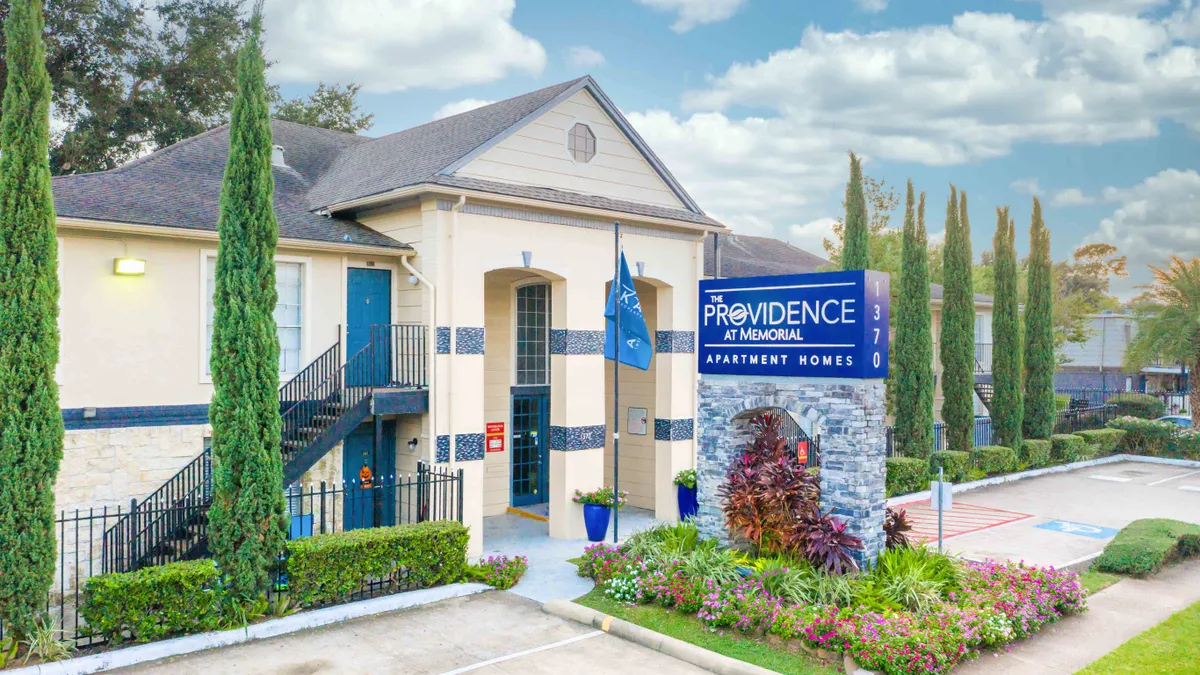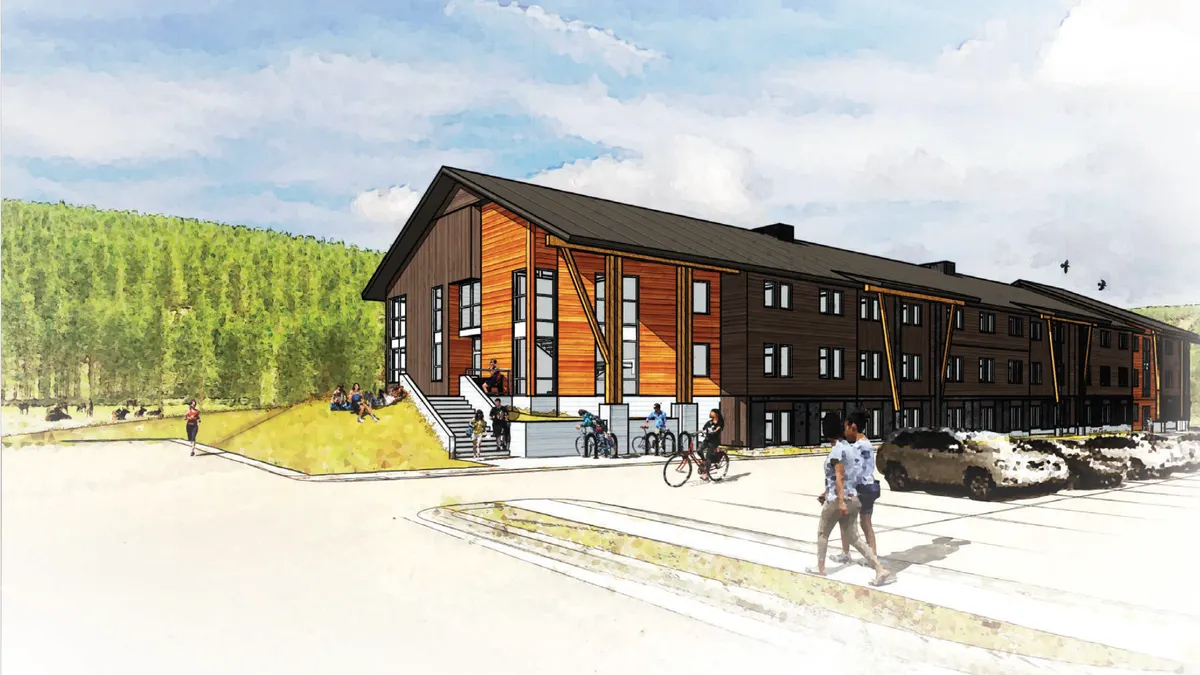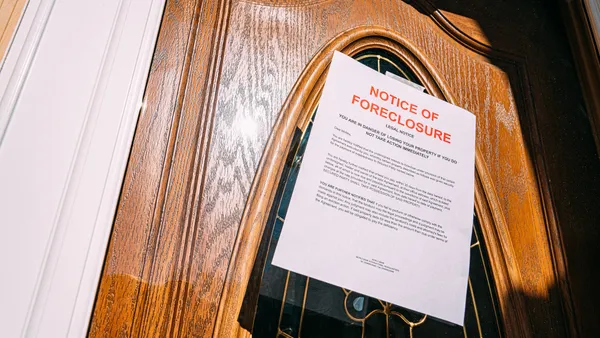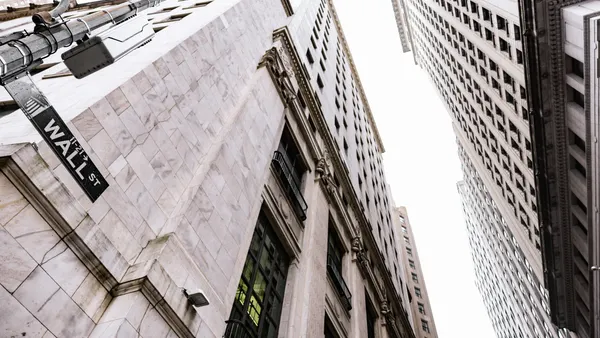As Swapnil Agarwal projected what 2022 would look like for his apartment business following the completion of roughly $2 billion in total transactions in 2021, he saw a market that was probably peaking and storm clouds on the horizon.
“Interest rates couldn’t go lower,” the CEO and founder of Houston-based Nitya Capital told Multifamily Dive. “We started seeing the supply chain issues and inflation, and we made the call that this is not transitory. There was just so much money that was put into the system.”
As the Federal Reserve moved to tame inflation over the last couple of months, Agarwal saw both interest rates and cap rates increasing. With those concerns, his company decided to put multiple properties on the market, including five Houston multifamily assets (including Providence at Memorial, pictured above) totaling more than 1,500 units in May.
But he has also been acquiring assets in places like Orlando, Florida; Jacksonville, Florida; Nashville, Tennessee; and Indianapolis, Indiana. The company has also moved into student housing.
“We've diversified into high-growth markets and newer housing assets,” Agarwal said.
For now, Agarwal plans to pause as he watches how the market reacts to interest rate increases. Here, he talks with Multifamily Dive about the fallout from increasing rates, the markets he likes and the possibility of distressed properties returning to the banks.
This interview has been edited for brevity and clarity.
MULTIFAMILY DIVE: What drove your decision to diversify?
SWAPNIL AGARWAL: I just saw an opportunity. I quickly realized that we had to take advantage of this bubble that we were in. The average cap rate for the assets we sold was 3.2%. Then I recycled capital, and the average cap rate I bought at was 4.5% or higher. So I was very happy to make that trade.
Were you mainly just selling in Houston, or did you trade out of other markets as well?
I sold in Las Vegas, Dallas, Kansas City [Missouri], Laredo [Texas], Austin and Utah. We recycled assets in quite a lot of markets.
It was the top of the market and we made great returns for our limited partners. It’s about timing. Everything in life is about timing. We do a lot of research. We’ve always been at the head of the curve.
Things are crazy right now with the way Treasuries are moving. How is that affecting your decision to buy and sell?
I think the pricing is going to come down on these assets a lot. This is just the beginning. We've been trying to close the last three housing assets under contract for a while. Now we're going on pause for the remainder of the year on acquisitions.

The beauty of it is that the properties we own are doing great. We're getting good cash flows and doing physical upgrades. We did everything we could at the right time. Now we don't have to do anything. We’ve got long-term debt in place.
We’re waiting for the right opportunity, which will probably happen in the spring or summertime next year when we’ll start getting calls from lenders. I think you’re going to be looking at lots of debt service coverage ratios that are going to default and I think it's going to get really bad.
So, do you think there are going to be properties that will be going back to the banks in the next year or so?
This business is hard. A lot of these people who bought properties are syndicators and need economies of scale to sustain themselves in these times. I know people are getting a lot of increases in rents but loans are going to come due. I don't think there are going to be refinancing markets for some assets. It’s going to be difficult.
Click here to sign up to receive multifamily and apartment news like this article in your inbox every weekday.









